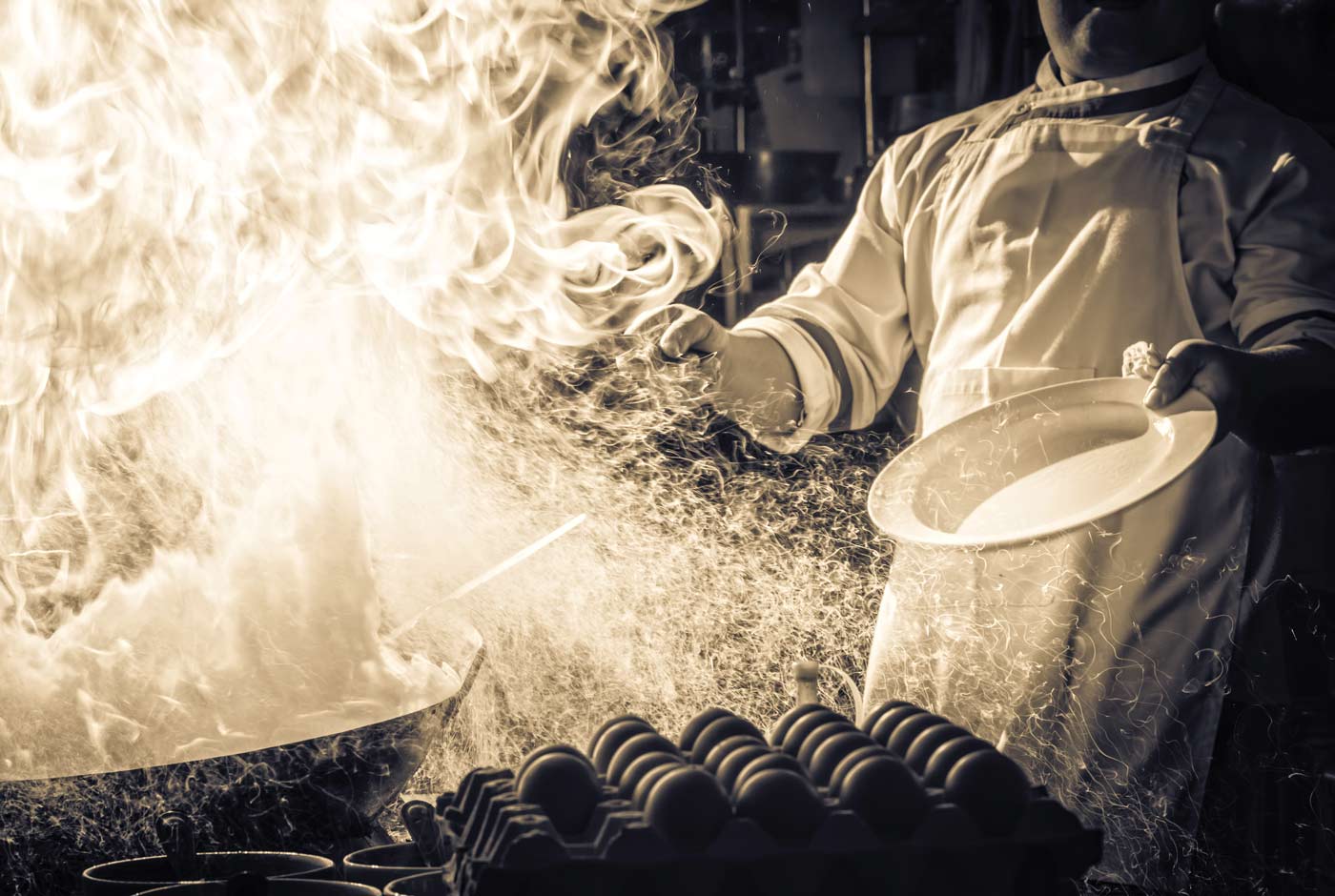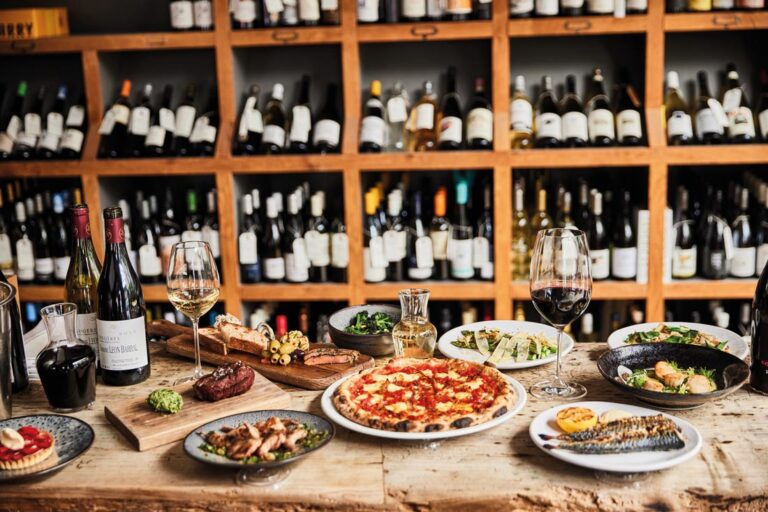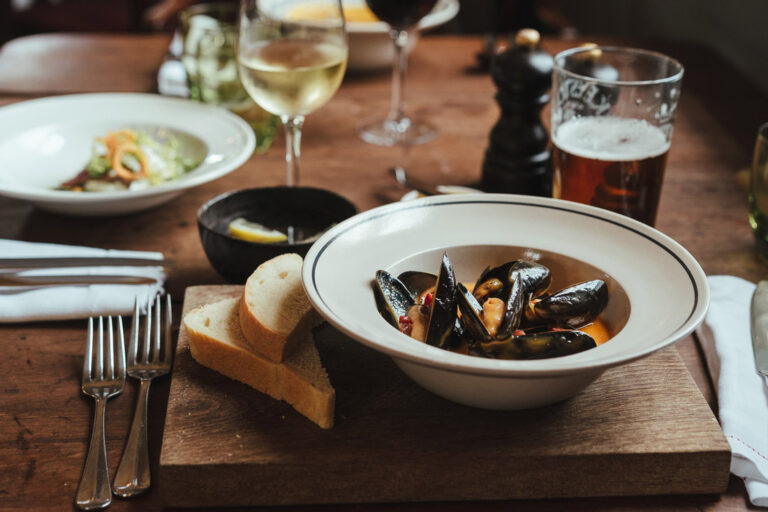- Feature
Where did all the chefs go?

The nation’s appetite for eating out is at an insatiable high. Yet as our taste for table hopping continues to rise, the number of skilled chefs is dropping. How will this affect our dining habits? Kathryn Lewis got the low-down from some of the South West’s leading chefs
Unsociable hours, double shifts and insufficient pay: the bad rep that comes with a career in the kitchen is nothing new. But there’s always been a steady stream of young chefs coming through the industry – until now.
And what’s peculiar is that our national obsession with cooking and food has never been at such a fever pitch.
‘There are a lot of chefs leaving the profession due to the unreasonable demands it makes on family life and not enough young people entering the industry to replace them,’ explains Simon Hulstone, chef owner of The Elephant in Torquay.
Two Michelin starred chef Nathan Outlaw relates: ‘We often find that people are unaware of the antisocial hours and commitment needed to work in a kitchen where precision is key.’
The issue has blown up recently and big names in hospitality have publicly highlighted the skills shortage, while local chefs have turned to Twitter in an attempt to find fresh recruits.
‘New chefs aren’t staying in quality kitchens long enough to learn and are chasing high positions and increased salaries before they have the skillset to do so,’ continues Simon.
It’s a problem that Michael Caines encountered when building his new brigade at Lympstone Manor.
‘Starting with no Michelin star, we struggled to get the right calibre of staff at first,’ explains Michael. ‘It seems that millennials have a different mindset from the generation before, with many in pursuit of quick fame without the willingness to learn.’
Our increasing appetite for eating out hasn’t helped the situation either. ‘We’ve definitely felt the effects of more restaurants opening across the county,’ says Adam Banks, head chef at Fifteen Cornwall. ‘The area is crying out for more talented chefs and it’s difficult to recruit skilled individuals.’
Surely it’s not all doom and gloom?
‘The funny thing is, despite this rather constant staffing issue, the industry is booming,’ comments Josh Eggleton of The Pony and Trap in Chew Magna. ‘The quality of food and produce around the country keeps getting better and, here in Bristol, it’s great to be considered one of the key epicentres of the hospitality industry.’
It’s not just Bristol that’s been basking in gastronomic glory, either. Michelin-rated restaurants such as The Elephant, Restaurant Nathan Outlaw and Lympstone Manor continue to fly the flag for fine dining in the South West, while the fast-casual movement has gained momentum with mobile eateries popping up in fields, beaches and abandoned spaces across the region.
‘Without a doubt, over the last 15 years the South West has improved in terms of restaurants and food quality,’ adds Michael.
So how will restaurant owners continue to staff their kitchens and uphold the South West’s sterling reputation if young chefs continue to turn their backs on hospitality? (And don’t even mention Brexit …) Today’s top chefs have taken on the challenge of cultivating tomorrow’s emerging talents.
Next generation
Fifteen Cornwall’s apprenticeship programme, the Nathan Outlaw Academy at Cornwall College, the Michael Caines Academy and The School of Food at Bristol College (co-founded by Josh Eggleton) are just a handful of initiatives coaching budding chefs across the South West.
‘Education is the key to managing this issue,’ says Josh. ‘The School of Food seeks to instil in students a passion for the industry as well as giving them the most fundamental skills and knowledge to succeed in it.’
Offering the chance to work alongside and learn from some of the region’s best chefs, academies such as these not only set out to nurture the next league of chefs but also to change the industry for the better at the same time.
‘Through Fifteen’s apprentice programme, we’ve worked to battle the usual assumptions that put young people off going into the kitchen,’ explains Adam. ‘We manage hours and focus training on development.’
While courses cultivate fresh talent, competitions such as the South West Chef of the Year seek to inspire young chefs to stay in the kitchen.
‘It’s all about celebrating people’s passion for food and making sure that we continue to support the industry, local people and local produce by highlighting their achievements,’ says its chairman, Michael Caines.
Ones to watch
So as our hero chefs rally around to sate our appetite for eating out, we’re bigging up the killer kitchen talents working all manner of hours to gratify our gluttony. These are the pros’ ones to watch …
Tim Speeding, head chef at Coombeshead Farm near Launceston
‘Adopting a nose-to-tail philosophy, Tim’s making waves with his imaginative dishes,’ says Nathan.
Elly Wentworth, sous chef at Lucknam Park near Bath
‘Elly has her head screwed on and is learning her craft with great chefs until she’s ready to lead her own kitchen,’ says Simon.
Rob Cox, head chef at Tudor Farmhouse in Gloucestershire
‘As the winner of SWCY 2017, it will be interesting to see more from Rob and how he continues to progress,’ says Michael.
Luke Hawkins, head chef at The Kensington Arms in Bristol
‘It’s difficult to just pick one, but Luke Hawkins is doing great things at The Kensington Arms,’ says Josh.
Share Where did all the chefs go? with your friends













